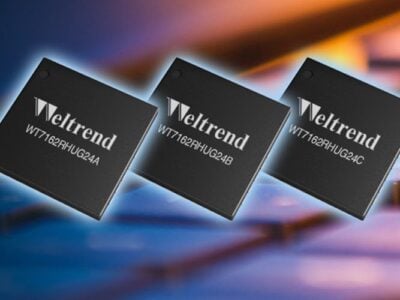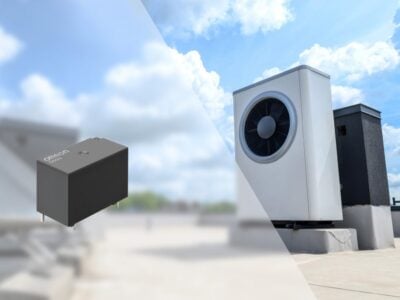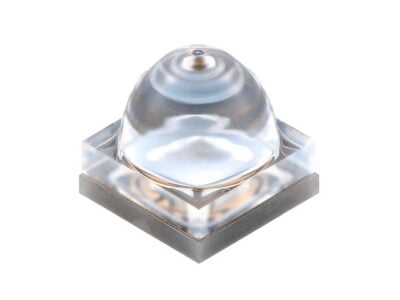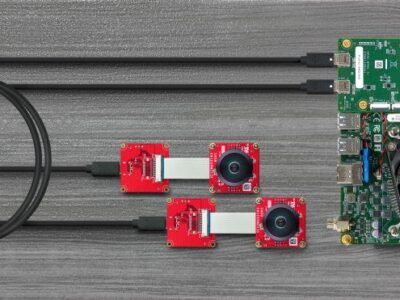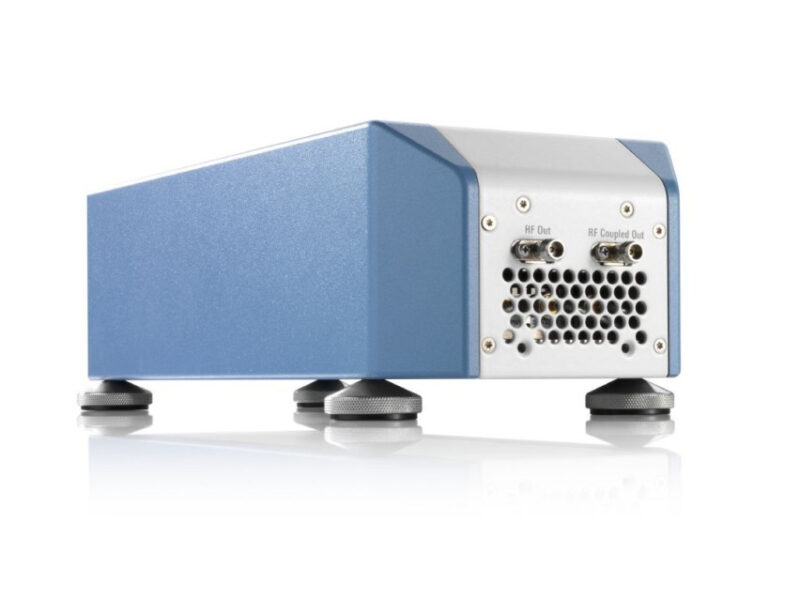
Upconverter tests 5G satellite payloads
Rohde & Schwarz has launched an upconverter to allow developers to test the latest generation of satellite payloads including 5G.
To enable continually higher data rates for end users of satellite links, satellite operators are using higher frequencies, such as the Q/V band, where larger bandwidths are available.
The SZV100A RF upconverter enables testing of broadband transponders in VHTS very high throughput satellite payloads. With its 2 GHz modulation bandwidth, the SZV100A covers the entire frequency range from 36 GHz to 56 GHz.
The Q/V band offers larger bandwidths for feeder links to satellites, making it ideal for the implementation of upcoming data links with high bit rates. This includes future communications and cellular backhaul networks that can provide end users with large volumes of data. Operators of conventional geostationary satellites as well as LEO satellites in the new space environment are discovering the advantages of these new satellite bands.
High demands are placed on microwave components in the Q/V band, which means they must undergo extensive testing during development and verification. Amplifiers, converters, receiver modules and complete satellite payloads are just a few examples of components that have to be tested in the Q/V band. Especially for satellite payloads, test equipment must meet very high requirements for signal quality.
Together with the SMW200A vector signal generator, the SZV100A Q/V band RF upconverter provides continuous coverage of all satellite bands from VHF to V band as well as the frequency bands for 5G in the Q/V band.
The test setup consists of the SMW200A vector signal generator, the SMA100B RF and microwave signal generator, and the SZV100A Q/V band RF upconverter. With its outstanding RF performance, the SMW200A delivers the modulated broadband IF signal with bandwidths up to 2 GHz, while the SMA100B provides the high-precision LO signal. The maximum output power of the SZV100A is as high as +16 dBm (at 1 dB compression point).
The compact housing design, low weight and mounting points of the SZV100A allow mounting as close as possible to the DUT, for example on the outside of a thermal vacuum chamber (TVAC). The distance between the IF source or LO source and the SZV100A can be as much as 10 meters, allowing an optimized test setup.
The upconverter and the signal generators can be operated remotely with a PC software over a LAN connection. The SZV remote control software enables simple and convenient configuration of the entire device setup.
The SZV100A is ideal as a low-cost upgrade for existing test systems. Thanks to the control software, the setup can be operated as a single instrument.
Related satellite articles
- WORK STARTS ON SYSTEM TO CLEAR SPACE DEBRIS
- TOOL BOOSTS I/Q DATA STREAMING TEST FOR GNSS
- SERVERS IN THE SKY AIM FOR GLOBAL BROADBAND
- PROJECT TO BUILD TERABIT OPTICAL LINKS TO SPACE
- TWO TEAM FOR IoT ASSET TRACKING
Other articles on eeNews Europe
- Samsung joins fight for ARM
- electronica plans scaled down exhibition
- Bosch starts 5G automation tests at Dresden wafer fab
- Withings raises $60m for AI-enabled wearables
- Mbed moves to new IoT development tools
 If you enjoyed this article, you will like the following ones: don't miss them by subscribing to :
eeNews on Google News
If you enjoyed this article, you will like the following ones: don't miss them by subscribing to :
eeNews on Google News
